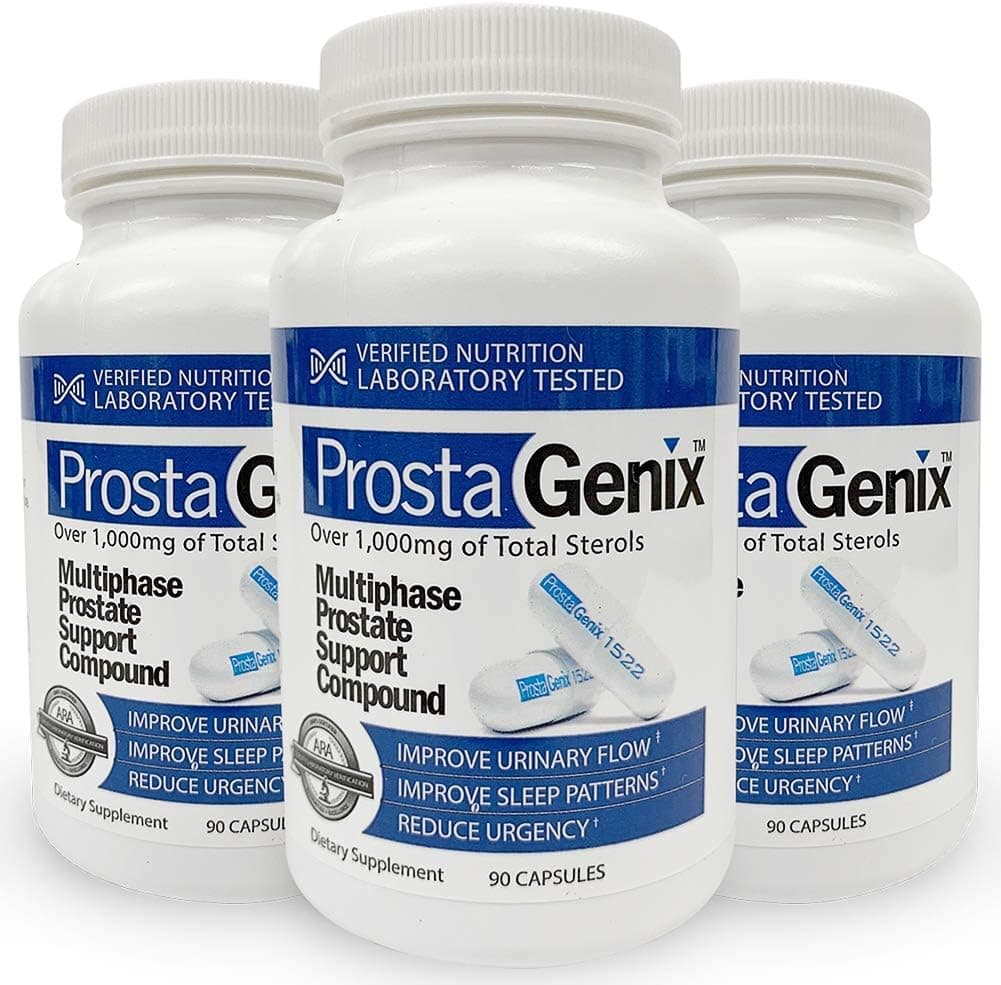Affiliate Disclosure
As an Amazon Associate, I earn from qualifying purchases. This means that if you click on a link and make a purchase, I may receive a small commission at no extra cost to you. All product recommendations are based on our honest opinions and thorough research. We only recommend products we believe will be valuable to our readers.
Quercetin: A Powerful Flavonoid for Prostate and Overall Health
Explore quercetin, a plant flavonoid with potent antioxidant and anti-inflammatory properties that may benefit prostate health and reduce symptoms of prostatitis.
Last updated: February 25, 2025

What is Quercetin?
Explore quercetin, a plant flavonoid with potent antioxidant and anti-inflammatory properties that may benefit prostate health and reduce symptoms of prostatitis.
Quercetin is one of several natural ingredients commonly found in prostate supplements. It has gained popularity due to its potential benefits for men's health, particularly for those experiencing symptoms related to benign prostatic hyperplasia (BPH) or other prostate conditions.
How Quercetin Works
The mechanism of action for Quercetin involves several pathways that may contribute to its effects on prostate health. Research suggests it may work by influencing hormone metabolism, reducing inflammation, or through other biological mechanisms specific to this ingredient.
Research Summary
Multiple clinical studies have investigated the effects of Quercetin on prostate health and urinary symptoms. While results vary, many studies suggest potential benefits for men with mild to moderate prostate-related symptoms.
Recommended Dosage
The appropriate dosage of Quercetin can vary based on the specific form, concentration, and individual health needs. Most clinical studies and commercial supplements typically use standardized extracts with specific concentrations of active compounds.
Always follow the dosage recommendations on product labels or as advised by a healthcare professional. It's important to use high-quality supplements from reputable manufacturers to ensure you're getting the proper amount of active ingredients.
Potential Side Effects
Quercetin is generally well-tolerated by most men when taken at recommended doses. However, as with any supplement, some individuals may experience mild side effects.
If you experience any adverse reactions while taking supplements containing Quercetin, discontinue use and consult with a healthcare professional. It's also important to discuss any supplements you're taking with your doctor, especially if you have existing health conditions or are taking medications.
Supplements Containing Quercetin
If you're interested in trying Quercetin for prostate health, there are many supplements available that contain this ingredient. Below are some popular options that include Quercetinas a key component:

Multiphase Prostate Supplement Capsule - 3 Bottles
Contains Quercetin and Beta Sitosterol, Pygeum

Medically Reviewed By:
Dr. Emily Rodriguez, MD, Nutritional Medicine
Integrative Medicine
All medical content on this site has been reviewed by qualified healthcare professionals.
Frequently Asked Questions
Quercetin is a flavonoid (a type of plant pigment) found in many fruits, vegetables, and grains. It's known for its potent antioxidant and anti-inflammatory properties. For prostate health, quercetin may help reduce inflammation in the prostate gland, which can be particularly beneficial for men with prostatitis (inflammation of the prostate). Some research also suggests that quercetin may help inhibit the growth of prostate cancer cells, though more studies are needed to confirm these effects in humans.
Quercetin is found in a variety of plant foods, with some of the richest sources being apples (especially with the skin), red onions, cherries, berries (particularly blueberries and cranberries), citrus fruits, green leafy vegetables (like kale and spinach), tomatoes, broccoli, and green tea. It's also found in some herbs and spices, such as capers, lovage, and dill. Red wine and certain varieties of honey also contain quercetin.
For prostate health, particularly for men with chronic prostatitis/chronic pelvic pain syndrome, studies have typically used doses of 500-1000 mg of quercetin daily, often divided into two doses. Some formulations combine quercetin with other ingredients like bromelain and papain, which may enhance its absorption. As always, it's best to consult with a healthcare provider before starting any supplement regimen, especially at higher doses.

